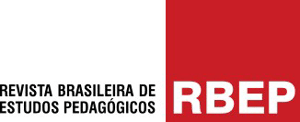Abstract:
This article aims to discuss the findings of an investigation that explored the operating power networks at the Practice School (Colégio de Aplicação) of the National Institute for Education of the Deaf (Instituto Nacional de Educação de Surdos - Ines) during the creation of a bilingual education program for the deaf in the 1990's. The investigation focused on specific actions performed by the teaching staff that aimed at reviewing concepts about hearing impairment and oralist learning. This review intended to cast aside a disability-based teaching approach and to embrace a socio-anthropological model for the education of the deaf. Pierre Bourdieu's concepts of social and capital fields, viewed as interchangeable with Michel De Certeau's tactics and strategy concepts, were implemented through the oral history methodology. Also, the interviews conducted in the study were triangulated with other documentary sources found in the Permanent Archives of Ines. It is inferred that although bilingualism has been the overriding principle in the institution's Political and Pedagogical Project since 1996, there is still a long way to go before the official curriculum intentions and the ones actually implemented on a day-by-day basis coherently match.
Keywords:
special needs education; Instituto Nacional de Educação de Surdos; oralism; bilingual education project
